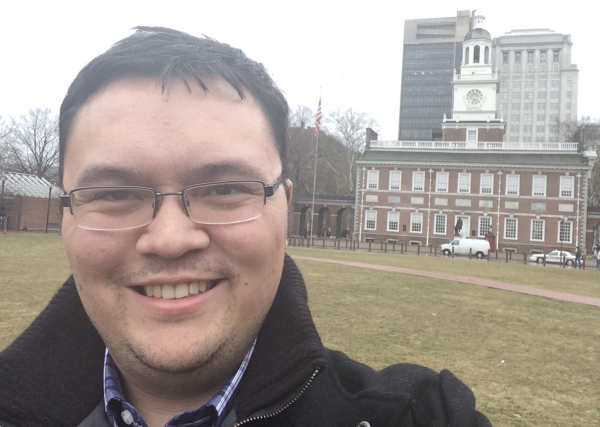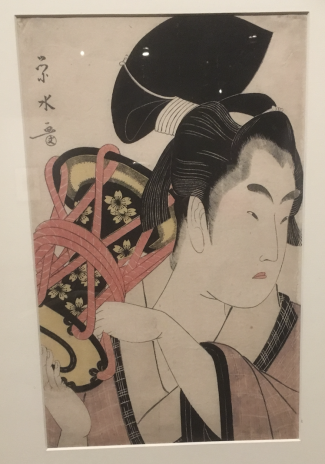 Nick Ota-Wang, MA student, was recently accepted to be part of a panel at the inaugural Queer History Conference in San Francisco from June 16-18, 2019 at San Francisco State University. The panel is entitled “Phase, Folly or Felony? Sex between Men and Youths in Australia, Japan, Ireland, and Italy.” The panel will be chaired by Susan Cahn, Ph.D. from the University of Buffalo. Other panelists include, Yorick Small Ph.D. of Griffith University, Averill Earls Ph.D. of Mercyhurst University, and Alessio Ponzio, Ph. D. candidate at the University of Michigan. Ota-Wang was the only masters level graduate student selected for this panel, as all of the other participants are a Ph. D. candidate, an assistant professor, and a professor, which speaks to his knowledge on the topic.
Nick Ota-Wang, MA student, was recently accepted to be part of a panel at the inaugural Queer History Conference in San Francisco from June 16-18, 2019 at San Francisco State University. The panel is entitled “Phase, Folly or Felony? Sex between Men and Youths in Australia, Japan, Ireland, and Italy.” The panel will be chaired by Susan Cahn, Ph.D. from the University of Buffalo. Other panelists include, Yorick Small Ph.D. of Griffith University, Averill Earls Ph.D. of Mercyhurst University, and Alessio Ponzio, Ph. D. candidate at the University of Michigan. Ota-Wang was the only masters level graduate student selected for this panel, as all of the other participants are a Ph. D. candidate, an assistant professor, and a professor, which speaks to his knowledge on the topic.
Additionally, Ota-Wang will be presenting his research on Wakashu, a 3rd gender in Edo Period Japan. The Edo Period also known as the Tokugawa Era (1603 – 1868) is the last era with no western influence in Japanese History. During this era, historic ideas and practices were not only accepted but were honored across the country. This included acceptance of gender, sexual orientation/preference, and an unique understanding of the spectrum of gender and sexuality in the human experience. The Wakashu are defined as “sexually mature males who were not yet recognized as adults” meaning that the ages of the males are what we in modern society consider to be teenagers. An individual can identify Wakashu through their hairstyle (as pictured below), which helps historians and art historians quickly identify them in artwork that has survived. As he prepares for the conference, Ota-Wang is anticipating questions regarding the significance of learning about and recognizing the Wakashu. Ota-Wang will also address issues of finding reliable primary sources from this time period. For more on the Wakashu and Ota-Wang's research, click here.
 Ota-Wang focuses on the history of gender and sexuality in the United States and plans to graduate in the Fall of 2020.
Ota-Wang focuses on the history of gender and sexuality in the United States and plans to graduate in the Fall of 2020.
